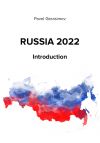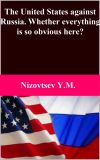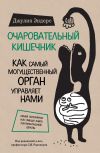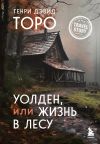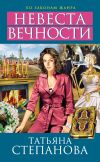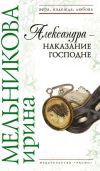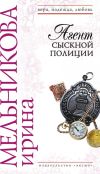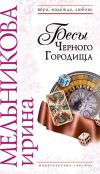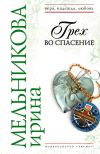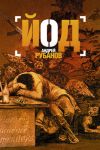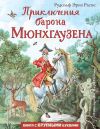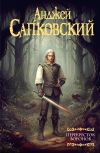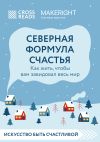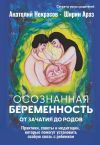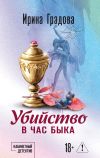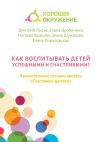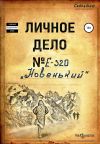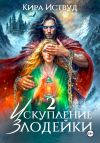Читать книгу "Nicholas II of Russia: little-known facts of life"

Автор книги: Борис Романов
Жанр: Исторические приключения, Приключения
Возрастные ограничения: 12+
сообщить о неприемлемом содержимом
Nicholas II: the Emperor Who Knew the Fate
Here I systematized little-known facts of biography of last Russian Emperor Nicholas II, related, in particular, with the predictions and prophecies, which he has received during his life, and I have built these facts in one time line – in result, the surprising picture has opened. The surprising picture has allowed completely on new to look at a history of his reign, his character, a life and destiny. Nicholas II tried to overcome a Fate many times: in 1899 (the Hague peace conference); then (most decisively) in March, 1905 (an attempt to abdicate and to head the Russian Orthodox Church); and then again and again but he could not overcome the Fate. His attempts to overcome a Fate are the main essence and content of this book.
In 2009, the St. Petersburg Documentary Film Studio has released a documentary on my script, titled "The Emperor, who knew the fate" (directed by Roman Yershov) – about the last Russian Emperor Nicholas II. The film won eight of diplomas and prizes at international film festivals (in Russia and Ukraine), including two awards for best screenplay, and the grand prize for best director.
The film on IMBd= http://www.imdb.com/title/tt1833718/ .
Below I will first briefly tell of the film (synopsis), and then describe in detail the essence of real events in the life of Nicholas II, which are reflected in the film.
Absolutely all lines of the story are created on a documentary basis.
Much more details all the facts set out below are described in my big book "Emperor, Who Knew the Fate. And Russia, Who Did not Knew" (published by "BHV-Petersburg", 2011).
Synopsis
1891. Young Heir Nicholas during round-the-world travel in April, 1891 in Japan at will of a case meets known Japanese monk-eremite. The old man predicts to him and Russia a set of heavy tests at the next years and threat for a life within the next few days. Next day the Japanese policeman makes attempt to kill his.
1896-1898. In five years (at September, 1896, soon after a marriage and Crowning), during official visit to England, Prince of Wales shows him a horoscope for date of his birth, made earlier at the request of prince by famous English predictor (Louis Hamon aka Cheiro) who has already had time to become famous in Europe for the exact predictions to some political leaders and heads of state, ministers, other known people.
The prediction for Nicholas II spoken: "Whoever the man is that these numbers, birth dates, etc., represent, he will be haunted all his life by fears of war and bloodshed. He will do his utmost to prevent war, but his Destiny is so intimately associated with such things that his name will be bound up with two of the bloodiest wars in human history; at the end of the second he will lose all he loves most, his immediate family will be massacred, and he himself will meet a violent death."
The life of Imperial family in Russia goes on by normal course, but once, after a meeting with known Russian economist (who has written earlier a large book against the future wars), In 1898 Nicholas recollects Cheiros prediction and he makes a decision to overcome a Fate: to call on all world leaders and organize the world conference on disarmament for prevention of wars (the Hague peace conferences May 1899).
1901. In March of this year there are 100 years from the date of murder of emperor Paul I. From that time in the former palace of emperor Paul (in suburb of St. Petersburg) there is stored the letter with the predictions of monk Abel (sealed by Paul's personal seal). Emperor Paul bequeathed «To open the letter to my descendant in centenary day of my death». In April, 1901, being pleased with a unusual adventure, Nicholas and his wife empress Alexandra come to the former Pauls palace. Nicholas opens sealers on an envelope and reads the letter: it is the predictions of monk Abel which lived in those years (1757-1841) and has made predictions for all future Russian emperors, up to Nicholas II and further for Russia. All predictions up to 1901 already precisely had happened (had taken place): monk Abel has predicted all events, including the names of Russian emperors (Nicholas's ancestors) with surprising accuracy. A prediction of the monk for Nicholas are gloomy: two wars, two revolutions, destruction of Imperial family in 1918 and accession above Russia of a godless yoke (Bolshevism). Nicholas and Alexandra are shocked. Alexandra does not want to believe in it.
Meanwhile in Imperial family the fourth daughter (Anastasia) is born. A Heir is not born on former. The French doctor and occultist (Filipp Vashon) and famous priest John Kronshtadtsky advise Nicholas and Alexandra to address to Seraphim Sarovsky's heavenly protection.
1903. During glorification in city of Sarov (city of Seraphim's monastery), Nicolai and Alexandra receive two posthumous prophetical messages from Saint Seraphim. One of these letters was forged (from Department of police) and the second (original) letter was from the widow of secretary of Seraphim Sarovsky (Elena Motovilova, 80 years old). In the evening of July 20, 1903 they read the big message of Saint Seraphim in which many events of Nicolai's reign are predicted, including the Russia-Japanese war, and – again – the awful end for Russia and for Imperial family in 1917-1918.
1904-1905. In 100 days after Sarov's celebrations, in Imperial family the Heir is born. It is soon found out, that he is sick of a hemophilia. Meanwhile, by 1904 on the Far East are weaved into hard unit of the contradiction between England and Japan, on the one hand, and Russia – on the another hand. Though Nicholas, for the sake of preservation of the world, is ready to compromise with Japan (and for a day prior to the beginning of war agrees on all its conditions), Japan nevertheless begins war, intentionally not having waited several hours before official telegram of the consent of Nicholas on all conditions of Japan.
1905. The war against Japan goes unsuccessfully for Russia. In Russia there are a disunion and revolution. Nicholas II see that a gloomy part of predictions of Japanese hermit, English predictor, monk Abel and Saint Seraphim comes true, and he again tries to overcome own Fate. In March, 1905, he meet with representatives of ROC (Russian Orthodox Church) and suggests to Archbishop and priests of ROC to restore patriarchate. Thus simultaneously he want to proclaim a renunciation of a throne and head ROC. Representatives of Church are silent. Nicholas is indignant by their silence and leaves assembly. After that Rasputin appears in Alexander Palace (in St. Petersburg's suburb where Imperial family lived since 1903) Nicholas comes into force, temporarily gets rid of influence of hostile opposition, builds the Duma monarchy (the Russian version of a constitutional monarchy). Stolypin carries out reforms. Revolution is suppressed.
1907. A political and economic approach of Russia with England begins. In August, 1907 Cheiro (English predictor) comes to St.Petersburg on his financial affairs. He makes the acquaintance of Minister for Foreign Affairs (Izvolsky) and makes to him a horoscope, and tells about future war (1914-1918). The minister tells about it to Nicolai II. Emperor invites Cheiro in the Peterhof palace. He is struck, having found out in Nicholas of that English gentleman who came to him in Cambridge in September, 1896. Nicholas asks to make for him two horoscopes – for Alexandra and Heir (baby Alexei). The same 1917-1918 arise for them as fatal years. After this events Cheiro meets with Stolypin and later – with Rasputin. They do not trust in made for them Cheiro's predictions.
1916. The First world war go on. The Russian pilots deployed near mountain Ararat (in Turkestan district) during one of flights see the Noah Ark (the glaciers on a southern slope of mountain has thawed because of extremely hot summer). Nicholas II receives the message about Noah Ark. He and Alexandra perceive it as last sign before Russia's crash. However, Nicholas and Alexandra for a long time already have decided to execute the duty to Russia up to the end. Nicholas orders to send to Ararat powerful expedition (150 person) for detection of the Noah Ark. Expedition achieves the purpose, measures and photograph the Ark, and in the beginning of 1917 sends documents and samples of a covering of the Ark to Petrograd (the name of St. Petersburg since August, 1914). Since March 9, 1917 Nicholas together with family appears under arrest in Alexander palace. Materials of expedition to Ararat vanish in perishing Russian Atlantis…
1917. March 2, 1917. The generals plot (conspiracy) was the last link in the chain of events and fatal obstacles which led to the overthrow of the monarchy Nicholas II was isolated in Pskov and had no communication with either the Commanders or anybody else. He understood that now the conspirators would not stop at anything. Nicholas did not want to strife and split in the Army and Russia, and he agreed to an allegedly voluntary abdication… ..So, in those days, all main predictions came true: they all called the year 1917 a fatal one: when he would be betrayed by his surroundings and would be forced to sacrifice himself for the sake of Russia, while he personally would lose everything.
Detailed exposition
The last Russian Emperor Nicholas II was born in 1868, murdered in 1918…
His biography seems to have been studied through the length and breadth, but the farther we get away from the events of those days, the more secrets history reveals to us… So many obstacles of the life of the last Russian Emperor are extremely unusual and enigmatic till now. I decided to tell you about them here.
1891
In 1890-91, Prince Nicholas travelled in the East. He visited Egypt, India, Burma (Myanma), Indonesia, and China. In Japan, an old guardian of the Russian cemetery told him about a famous Japanese hermit, monk Terakuto: this monk was able to read people’s fates. He lived not far from Kyoto.
Visiting Kyoto was in Nicholas’s plan for Japan.
On April 28, escorted by Greek Prince George and interpreter Marquis Ito, Nicholas met with Terakuto.
Marquis Ito quoted two of Terakuto’s prophesies in his memoirs.
The first: “The danger is lingering over your head, but the death will step back, wherefore a cane will be stronger than a sword… and the cane will then shine and glitter.” The second: “Great sorrows and convulsions are apprehending you and your country. You will be fighting for everyone, and everyone will be against you. Beautiful flowers grow at the edge of an abyss, but their poison is pestiferous: children long to the flowers and fall down into the abyss if they do not listen to their Father… There is no sacrifice blessed more than the one you made for your entire people… I see tongues of fire above yours and your family’s heads…”
A few days after this meeting with Terakuto, an attempt on Nicholas’s life was made in the town of Otsu.
…Policeman Tsuda Sandzo pulled out his samurai sword and hit Nicholas on his head twice. Greek Prince George saved Nicholas’s life having deflected the third blow aside with his cane. Rickshaws seized and disarmed the assailant.
(Later on) by order of Alexander III the cane that had played such an outstanding role was decorated with adamants and given back Prince Gtorge.
As Terakuto had predicted, “the cane turned out to be stronger than the sword, and the cane started shining with glitter…” The first of the two prophecies came true.
For a few days, Nicholas remained sad… But he was only 23, and his melancholy could not last long… It is hard to believe that he was able to perceive the gist of the second prophecy at the time…
1896-1898
…Five years passed. They embraced his father’s death (Alexander III), his marriage to Hessian Princess Alice, the official coronation in Moscow, and numerous peoples’ deaths during the coronation festivities at the Khodynka Field…
By the way, according some data, the mass stampede took place not only at Khodynka Field in Moscow in 1896, but also earlier – at Golden Jubilee of Queen Victoria in London (in 1887): in the memoirs of Russian general Kuropatkin (due to the "Khodynka" in May 1896 in Moscow), we read: "The Duke of Edinburgh said that during the celebration of the 50th anniversary of the reign of Queen Victoria had 2,500 people were killed and several thousand injured and no one was embarrassed." (Nikolai II: Memoirs. Diaries. St. Petersburg., 1994. pp. 47-48.) Alexei Kouropatkin. From the diaries 1896. May 19. However, perhaps these memories is not correct, and there had mean not the 50th anniversary of the reign of Queen Victoria, but a mass stampede in 1883 in Sunderland (UK), where in the distribution of gifts to children in the concert hall «Victoria Hall» were killed 183 children
However, back in 1896. In August 1896, three months after the coronation, Nicholas II and Alexandra with their baby daughter Olga went for an extended European tour paying official and private visits to the august lords of Europe. In September, they arrived to the coast of Scotland. Queen Victoria (Grand Mother of the Russian Empress) was waiting for them in the Balmoral Castle.
Here Nicholas had received his second prophecy, this time from English Count Louis Hamon (also known as famous predictor Cheiro). The Prince of Wales passed the text of this prophecy to Nicholas.
Cheiro had predicted the future to monarchs, ministers, many famous people from Europe and America. In particular, he had predicted many events (including the dates of deaths) to Queen Victoria of Britain and the Prince of Wales (the future King of England), as well as the attempt on the life of the Persian Shah.
Long before the Titanic’s catastrophe, Hamon had predicted this tragedy.
Here is the gist of his prediction for Nicholas II:
“Whoever the man was that these numbers represented, would be haunted all his life by the horrors of war and bloodshed; that he would do his utmost to prevent it, but that his Destiny was so intimately associated with such things, that his name would be bound up with some of the most far-reaching and bloodiest wars that had ever been known, and that in the end he would lose all he loved most by sword or strife in one form or another.”
… Nicholas had no plans of war with whomever, and there were no signs of war in Europe in those years.
People in Russia and in the world saw him as a peaceful tsar.
One British newspaper wrote in early 1930s that in 1898 Nicholas II, under the influence of Cheiro's predictions for the upcoming bloody wars, had initiated convening of the Hague Peace Conference.
In 1898, Russia had sent out a note to governments all over the world naming the arms race unacceptable and offering to convene a conference on this issue.
There were many opponents among the world leaders, but thanks to Nicholas’s insistency, the conference took place in the Hague in May 1899. A Convention on the rule of carrying out wars was signed there, and – for the first time in history – an International Arbitration Court was established.
By the way, in 1901, Nicholas II and Russian diplomat Fyodor Martens have been nominated for the Nobel Peace Prize. The memory of Nicholas's II contribution to peace immortalized in the UN: the UN Secretariat posted Appeal Russian tsar to the peoples and governments of the world (1898), and there is a bust of Nicholas II there.
We can say that Nicholas II tried to “overcome his fate” – to prevent a possible war – already in the first years of his governance.
1901
Five years later, this time in Russia, Nicholas and Alexandra got another prediction of their own and the country’s tragic future. This time, the prophecy came from the past and was a lot more detailed than those of Terakuto and Hamon.
It was a prophecy of monk Avel (Abel, 1757-1841).
While Avel was alive, each Russian monarch, starting with Catherine II, had put him in prison after knowing the date of his or her date of death predicted by Avel.
Each following monarch, including Emperor Paul I, would let him out to discuss the enigmas of the future with him.
Avel's prophetic message was kept in a small exquisitely decorated box in Gatchina palace: in 1801 Emperor Paul I had put it into an envelope and inscribed on it:
“To be unsealed by my descendant on the hundredth anniversary of my death.”
The 100th anniversary came on March 12, 1901.
According to his Great Grandfather’s will, Nicholas and Alexandra decided to go to Gatchina to reveal the century-old secret. They departed joyfully, but came back very reflective and sad.
What was written in this message?
The text of the letter was published abroad in the early 1930s: first in Berlin, and later on, in Kharbin.
Here is what Avel wrote about the “last tsar:”
“…He will have big patience and dove’s purity… He will replace his crown of a tsar with a crown of thorns; he will be betrayed by his own people. … There will be a war, a very big war… People will fly in the air like birds, and swim under the water like fish; and they will extinguish each other with evil-smelling sulphur. The tsar’s throne will crash down on the eve of the victory. The treason will grow and abound. And your grandson will be betrayed, and many of your descendants will shed white their clothes with the blood of the Lamb; and a man with an ax will grasp the power in insanity, but will afterwards cry bitterly himself… Blood and tears will give drink to the mother earth. Bloody rivers will flow. Brother will rebel against brother… This is God’s connivance, God’s Anger for Russia’s abdication from its sovereign blessed by God. And there’s worse to come…
Two wars will come, each one more sorrowful than another. A new Khan Baty will raise his hand in the west. The people will get between the fire and flames. But Russian folk will not be extinguished from the face of the earth, as will be protected by the prayer of the tortured Tsar.”
…
…
By the beginning of the 20th century, three daughters were born in the royal family. Everybody had been hoping for an heir, but on June 5, 1901, the fourth daughter was born in the Tsar’s family; she was named Anastasia. No prayers for a son would help.
1903
Then a well known priest John Kronshtadsky told them about the Saint wonder-worker Seraphim Sarovsky (1759-1833).
Simple people considered him a Saint for a long while, but the Church had not canonized him as a righteous Holy man until 1903.
By the beginning of Nicholas II reign, Archpriest Johann had already gained the glory of a physician. He had even been healing remotely, like he did with the son of Bulgarian Tsar Boris. Thousands of people attended his bright prophecies.
By the end of his life (he died in 1908), father Johann had anticipated the approaching tragedy of Russia and was badly distressed by it. “Repent, wherefore an awful time is coming. It will be so awful that you cannot dare imagine…”
He offered to glorify/canonize Seraphim Sarovsky in 1903.
Father John wished to give to Royal Family a strong heavenly guardian…
Celebrations of glorifying and canonization were arranged in July of 1903.
Nicholas and Alexandra were going to Sarov with the entire family: they were going to pay homage to the remains of the Saint and pray to him for a birth of a son.
The Emperor’s train arrived in Arzamas where from the Royal Family started for Sarov – to the Diveyevsky Monastery, where they had spent three days in praying.
The Empress had been taking baths in the baptismal fount at night praying for a birth of a son. In those days, Reverend Seraphim was declared the Tsar’s family’s heavenly guardian.
On July 20, 1903, the 80-year old widow of Seraphim Sarovsky’s secretary passed a letter to Nicholas II. Seer Seraphim had written this letter specially for Nicholas II in the last year of his life (in 1833) and gave it to his secretary with the words:
“You will not live to see this, but your wife will see when the entire Royal Family will come to Diveyevo to pray on me, and the Tsar will come to see her. Let her pass then my letter to the Tzar”.
Nicholas II took the letter with veneration. He had read it after he came back to the Hegumen’s house and started crying bitterly after that. The court people tried to console him saying that Father Seraphim, though a Saint, could be wrong, but the Tsar was inconsolable.
The message from Seraphim Sarovsky had warned Nicholas II about all the major events in Russia in detail, up until the year 1918, and then later on until the end of the 20th century.
…
After gaining Seraphim Sarovsky as the heavenly guardian, Tsarina Alexandra conceived in the late autumn of 1903, and on July 30, 1904, she gave birth to a boy – the heir Prince Alexey – at the small Alexandria Palace in Petershof (suburb of St.Petersburg). Nicholas II wrote in his diary:
“July 30. An unforgettable and great day for us… I do not have enough words to thank God for the consolation he sent to us in this year…”
…
In 1903, Russia got into a deep political conflict with Japan and Great Britain. Nicholas, remembering that by predictions the war with Japan could be a very hard one, was agreeing to one concession after another. By 1902, the Trans-Siberian Railway was nearly completed; this helped the Russians trade in the Far East.
But on the eve of January 23 (1904), the Japanese military attacked the Russian squadron in Port Arthur…
One of the two predicted to him bloody wars had begun.
1904-1905
It became clear very soon that the war would be long and hard. No victories had been won, and the life of ordinary people was getting more and more hard: an all-world financial crisis was taking place in the years of 1900-1905, and it was extremely hard in Russia.
Understanding all this, Nicholas II had begun to prepare a broad program of liberal reforms. We could compare it with Gorbachev’s “perestroika” of the 1980s! Mass media started to openly criticize the bureaucracy and discuss the necessity of major reforms. On the eve of the new 1905 year, all thinking people in Russia had been living with expectancy of huge changes coming from the top; many believed in the first Russian constitution to come…
The January 1905 events had pushed all these expectations away.
The day of January 6, 1905, became a warning to these events: on the day of the water consecrating ritual (Epiphany), during the fireworks from the Peter and Paul Fortress, one of the artillery guns accidently shot at the Winter Palace with canister shells; they hit windows of the Winter Palace and the Jordan Pavilion where the clergy and the Tsar with his escort were at the moment. The canister shells cut down the staff of the church flag right above Nicholas’s head and wounded one of the officers.
Coincidentally, the last name of the officer was Romanov.
In the meantime, the capital was paralyzed by strikes of workers on military enterprises – and this was taking place during war time!
Japan had assigned major sums of money to destroy stability in Russia from inside; the money was used to terrorists to purchase weapons, to organize strikes of military enterprises, and for strike funds…
On January 9, 1905, a peaceful demonstration of workers was scheduled to take place in the capital of Russia in order to pass a petition with a number of requests of social and economic character. However, social-revolutionary terrorists added a long list of absolutely unacceptable political demands to this petition.
Considering all the obstacles, on January 8 the monarch decided against going to the capital city next day.
The demonstration was banned, but a renegade priest Gapon did after all lead the people into the streets. The armed social-revolutionary terrorists were among the peaceful demonstrators… Half a year later, being abroad, the renegade priest Gapon answered a journalist’s question about what would have happened had the Tsar come out to the demonstration. Gapon said: “He would have been murdered immediately…”
…The tragic events of January 9 produced the most formidable impression on the royal family. And the revolutionaries kept escalating terror. In February, they assassinated Great Prince Sergey, a close relative of Nicholas, in Moscow.
A serious conversation on the future took place between Nickolas and Alexandra. All of the predictions they had received earlier from various sources had come to take place. All attempts to overcome the gloomy prophecies proved to be of no result.
March 1905. An attempt to renounce the throne.
This time the Tsar decided to overcome the Fate forever: to abdicate in favor of his little son Alexey under the regency of Alexandra and the Tsar’s brother Mikhail.
Tsar Nicholas himself planned to go into convent. However, Metropolitan Antony did not agree to give his blessing to this decision: “One should not build his personal salvation on refraining from monarchial bonds indicated to him by God…”
After long contemplations in prayers, Nickolas decided to restore the Patriarchy; he offered the Church to elect him Patriarch.
…Peter I dismissed the Patriarchy and established the Holy Synod, the Head of which was appointed by the Monarch himself. This way the Russian Church had lost its independence and its destiny as keeper of “nation’s honesty.”
Back in the 19th century, many had realized that restoration of the Patriarchy was necessary for the benefits of the people and the country. The crisis of faith threatened the whole society with a catastrophe. Nicholas II had deeply felt this as well: he did consider himself personally answerable to God for the Russian people and the strength of people’s faith. Up until 1917, words “the father-tsar” were more than just words for the peoples of Russia, but their hope and faith as well.
The 1904-1905 mutinies ultimately convinced Nicholas II of the necessity to restore the independence of the Church and its authority among the nation. He had to fulfill his bonds to Russia in the capacity of the Patriarch of the Independent Church…
In March 1905, the Monarch announced his decision at the traditional meeting with the members of the Holy Synod and asked for their approval.
One of the participants of that meeting wrote:
“…This was so unexpected and so far from any of our assumptions that we could not find what to answer and remained silent for several moments… The Tsar stared at us all in indignation, stood up in silence, bowed to us and left the room where we remained crestfallen and almost ready to tear our hair out for our inability to produce an adequate answer. We should have made a low bow to him, admiring the greatness of the decision he had made on a heroic exploit of saving Russia, and we had just remained silent.”
And further on, this writer continued:
“The Tsar’s heart is truly in God’s hands; thanks to what happened, it revealed that the hierarchs had been looking for their strength in the Patriarchy, but not in God, and THEIR HOME WAS LEFT EMPTY…”
… Nicholas II had failed once more in overcoming of the course of his fate. This was a tragedy of a strong and committed, clever and deeply religious man, the last Emperor of Russia. He was not discouraged, he had continued doing what he had to, but he was aware of what was there ahead of him…
It might very well be that this internal knowing was the reason for his outwardly calm attitude towards many events and his “reliance upon the grace of God” frequently mentioned and disapproved by contemporaries from his immediate circle…
…
Meanwhile, Russia was experiencing serious defeats in the course of its war with Japan – both on land and sea. But by the summer of 1905, Japan had fully exhausted its reserves to continue the war and was paying a very high price for each new victory: its military casualties were nearly two times higher than Russia’s.
Besides that, Russia could go on with the war for a long time. Being aware of this, Nicholas began peace negotiations from the position of strength.
Prime Minster Sergey Vitte came to the U.S. – to the city of Portsmouth – for negotiations and, quite unexpectedly, Japan agreed to a peace treaty on honorable for Russia conditions. The Portsmouth Treaty was acknowledged as a national tragedy in Japan and with ironic smiles among the opposition in Russia.
Insurgencies and riots kept going in Russia.
Nicholas commissioned Vitte to prepare a Manifest of Civil Liberties. On October 17, 1905, the Manifest came into effect. After almost 300 years of absolute monarchy of the Romanov dynasty in Russia, major changes, including freedom of speech, meetings, parties and people’s representation in the elected legislation body – the State Duma, were about to start… Preparations for the elections began.
But armed encounters started in Moscow. Nicholas assumed tough measures in order to suppress them.
…
The royal family was in deep depression. Besides all, it turned out that their son Alexey was sick: he had hemophilia – a hard and incurable disease.
Rasputin helped the little boy to overcome painful shocks connected with hemophilia and promised to Nickolas and Alexandra that the boy would “get rid of the disease after he turned 18.”
We are not going to tell Rasputin’s story in details here. We can only mention that gossips and slander about his influence over Nicholas through the Empress were hugely exaggerated by the opposition.
Police Department Director Vasiliev investigated the issue of Rasputin’s influence on Nicholas’s decision making, including through so-called “notes” to the Empress, and came to conclusion that it was practically negligent. Altogether, there were 10-15 notes, and only two of them coincided with Nicholas’s orders.
1907
…1907. Almost 4,500 state officials had been killed or disabled by revolutionary terrorists in two years. But by now, the revolution had been totally suppressed. Moderate Third Duma was functioning. Some results started to come out from the October 17 Manifest. Russia was in the process of intensive development.
Prime Minister Stolypin carried out his reforms and was working on grandiose plans of modernization of the country designed for the next 20 years. Russia began to turn into one of the most advanced countries in the world.
Внимание! Это не конец книги.
Если начало книги вам понравилось, то полную версию можно приобрести у нашего партнёра - распространителя легального контента. Поддержите автора!